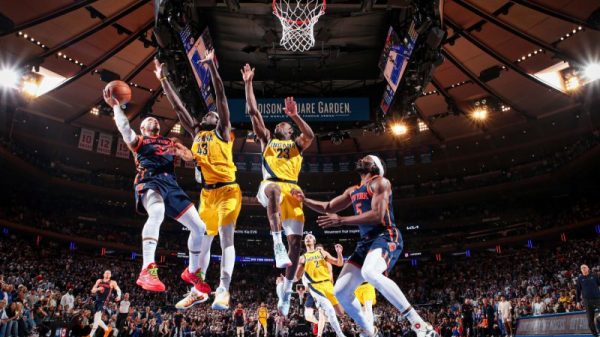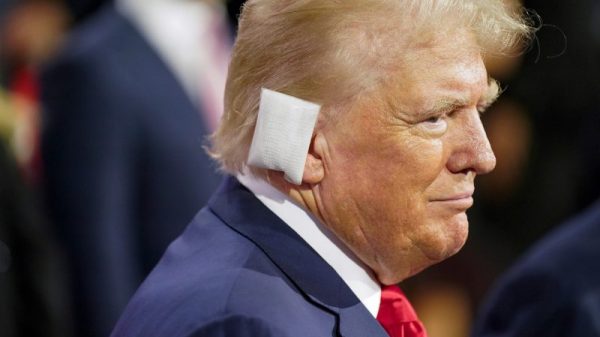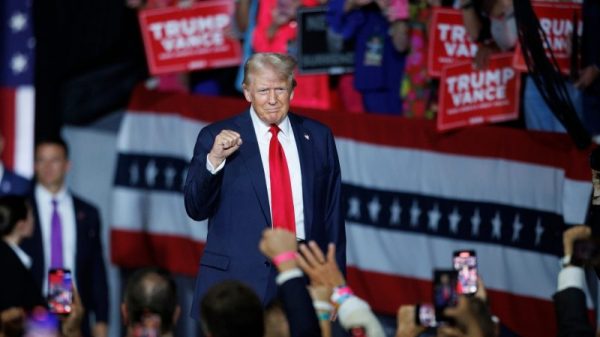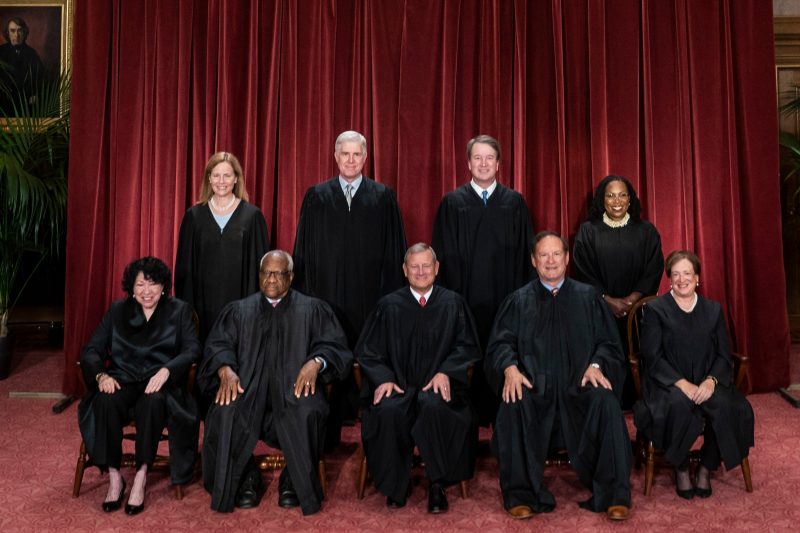Chief Justice John G. Roberts Jr. has fought an increasingly losing battle over the past seven years at keeping the Supreme Court out of the political arena, with pleas that have fallen largely on deaf ears.
“You don’t want the political branches telling you what the law is, and you don’t want public opinion to be the guide about what the appropriate decision is,” Roberts said last September at a judicial conference in Colorado.
Instead of his nonpolitical vision for the nine men and women in black robes, all signs point toward a new normal in which partisans will use the justices as pawns in their elections.
After decades of advantage for Republicans on the issue, recent elections have shown a growing margin for Democrats that could prove critical in close elections. In addition, conservative voters are showing signs of being politically satiated and losing interest in the courts as a voting issue.
The more that the issue gets played out in these campaigns, the more politicized every decision will become for the justices. Which explains why their image has begun to crumble to resemble a presidential or congressional approval rating.
In January 2001 — one month after the controversial Bush v. Gore decision that settled the 2000 presidential race — 59 percent of voters approved of the Supreme Court’s performance, according to Gallup, which has polled this issue consistently this century. Just 34 percent disapproved.
It remained mostly popular well into the last decade, even after the controversial confirmation of Justice Brett M. Kavanaugh just before the 2018 elections amid accusations of an attempted sexual assault when he was in high school. Two years ago, 49 percent of Americans approved of the court’s performance, while 44 percent disapproved.
Last September those numbers cratered, with just 40 percent approving and a record-high 58 percent disapproving. Just 7 percent of Americans have a “great deal” of confidence in the “judicial branch headed by the U.S. Supreme Court,” while three times as many adults expressed “none at all.”
It’s the inevitable result of how much political attention has been paid to the court, starting in 2016 when Justice Antonin Scalia died suddenly right in the middle of the presidential campaign.
Sen. Mitch McConnell (R-Ky.), then the majority leader, declared that the Senate would not consider any nominee in the final year of Barack Obama’s presidency. It served as a rallying point for conservatives, who delivered for Donald Trump and kept the Senate majority in GOP hands.
“The single biggest issue in bringing Republicans home in the end was the Supreme Court,” McConnell told The Washington Post in a 2017 interview. “The single biggest issue.”
Exit polling showed that 21 percent of voters considered Supreme Court appointments the “most important factor” in the presidential contest, and Trump won those voters, 56 percent to 41 percent, over Hillary Clinton.
Just before the 2018 midterm elections, The Washington Post broke the story about the Kavanaugh allegations, prompting a second nationally televised hearing and several weeks of intense focus on the nomination.
According to the Associated Press’s VoteCast data, 49 percent of voters in those midterm elections considered the Kavanaugh vote “very important” in deciding their vote, with 58 percent favoring Democrats. But in conservative-tilting states, the nomination fight galvanized Republican campaigns and allowed a GOP net gain of two seats in the Senate, knocking off three Democratic incumbents in Indiana, Missouri and North Dakota.
“A color enhancement event, making the red voters redder and the blues bluer,” independent political analyst Charlie Cook wrote about the nomination fight.
In September 2020, Justice Ruth Bader Ginsburg died less than seven weeks before the election and McConnell — reversing his 2016 opposition to any nominee before a major election — rushed through the confirmation of Justice Amy Coney Barrett eight days before the public vote.
Democrats benefited politically, as conservative fixation on the Supreme Court waned. Just 13 percent of voters said Supreme Court appointments were the “most important factor” in their decision, down eight points from four years earlier, according to exit polls.
And Trump barely won those voters, 51 percent to 47 percent, over Joe Biden, well off his 15-point romp with those voters in 2016. And among the 47 percent of voters who considered these appointments “an important factor,” Biden won handily, 54-45.
Ahead of the 2022 midterms, justices seemed most concerned with the fact that the advance draft of their Dobbs ruling — overturning abortion rights from 1973 Roe v. Wade decision — had been given to Politico two months before they formally issued it.
Voters did not have such concerns and instead turned furious about the ruling. Given a choice of five hot-button issues — crime, inflation, gun policy, immigration and abortion — abortion was the second-most important issue in the election, narrowly trailing inflation, according to exit polling.
More than three times as many Democrats cited abortion than Republicans.
On which party voters trusted to handle the issue, Democrats won 53 percent to 42 percent, and 61 percent of voters described themselves as angry or dissatisfied with the Dobbs ruling.
Another troubling sign for the court is everyone seems to have an opinion about it. From late 2001 through late 2014, anywhere from 8 to 14 percent of Americans told Gallup they had no opinion at all about the Supreme Court’s job performance.
After the Dobbs decision, only 2 percent expressed no opinion.
If the recent past is the political prologue, the Supreme Court is likely to make some decisions that will once again turn it into a political chess piece in the presidential and congressional campaigns next year.
Will conservatives get as excited about the issue as they were in 2016? Or did the Trump-era success, along with continued rulings in their direction, deplete the energy around the court?
Conservatives have been outraged at the security threats some justices have faced in recent years, accusing Democrats of fanning the flames a bit too much in their critiques of some justices.
McConnell has also repeatedly tried to make political hay out of the liberal fever dream of winning control of Congress, eliminating the filibuster on legislation in the Senate and then adding new justices to the court to create a liberal majority.
But Biden and veteran Senate Democrats have rebuffed those calls to pack the Supreme Court, making it more of a theoretical debate among law school academics and a few interest groups.
Liberals expressed outrage over the court’s conservative wing for their late June decisions overturning decades of support for affirmative-action programs and rejecting Biden’s $400 billion executive action to forgive student loan debt.
But as Aaron Blake of The Washington Post’s Fix team recently illustrated, those decisions are not at all out of step with the broad public sentiment.
One issue that could mushroom, both against the justices and helping Democrats, is the seemingly expanding scandals related to undisclosed gifts to Justices Clarence Thomas and Samuel Alito, from conservative billionaires.
Senate Democrats are pushing legislation that would require justices to adhere to a stronger code of ethics that would involve mandatory disclosure of expensive gifts and potentially clearer lines of when justices should recuse themselves from cases.
Roberts has fought against these proposals, believing that his court is a separate power that should govern itself.
“I am confident that there are ways to do that that are consistent with our status as an independent branch of government under the separation of powers,” Roberts told a law institute crowd in May.
The chief justice goes back and forth between appearing irked at the criticism aimed at the court, to saying today’s justices can handle the heat.
“The court has always decided controversial cases and decisions always have been subject to intense criticism and that is entirely appropriate,” Roberts said last September.
That appropriate criticism will continue to be intense so long as each party keeps turning the justices into campaign props.


































